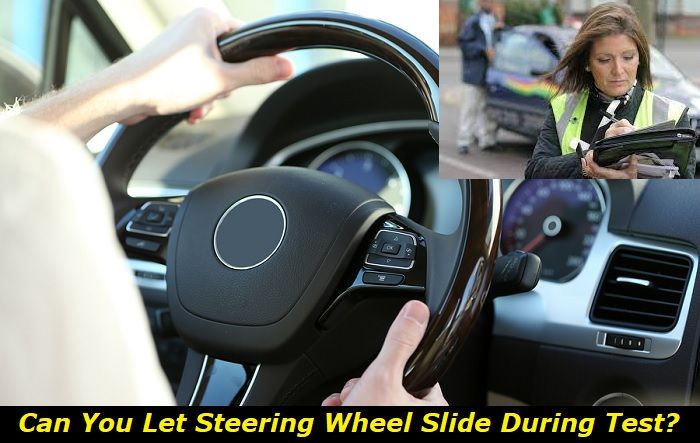Have you ever been cruising down the road, and then your car abruptly stops running with no apparent cause? You check the dashboard to see all of its lights illuminated. What could be triggering this problem? It might range from something as straightforward as a loose cable connection to more serious issues such as engine failure.
Electrical gremlins highlights
- Level of urgency:medium
- DIY inspection:impossible
- DIY repair:impossible
- Can you drive?yes
- Price for repairs:$0 - $300
- Symptoms:glitch, unusual behavior, temporary problem
- Ways to solve:check the battery voltage, check wiring and connections, take it to a professional mechanic
.jpg)
What Lights Are on?
The first step to diagnosing any potential problem is to identify what lights are illuminated. As vehicles vary, the type of indicator light and its meaning could differ. However, some of the most common lights that appear when a car stops running are the check engine light, oil pressure light, and battery light.
The check engine light usually indicates an issue with the vehicle's emission system, such as a malfunctioning spark plug or faulty fuel injector. It could also indicate a more serious issue, like a failed catalytic converter or worn oxygen sensor.
The oil pressure light could indicate an issue with the car's oil system, such as a low engine oil level or a blocked filter. It may also alert you to a more serious issue, such as an oil leak or worn-out engine parts.
Lastly, the battery light may indicate a low charge in the battery or a potential issue with the charging system. It could also alert you to a loose cable connection, corroded terminals, or a faulty alternator.
What Are the Most Common Potential Causes of All Lights Coming On?
When all your lights come on, it is most likely it is something wrong with the electrical system of your car. It may be due to the following reasons:
1) Faulty Alternator
The alternator generates a charge to your battery and powers all the electrical components in your car. If it fails, then it will not be able to deliver power as required and, thus, can lead to all lights coming on. This is probably one of the most common reasons for all lights coming on.
2) Loose Connection
Sometimes, you might have a loose connection somewhere in the electrical system of your car. This can cause all lights to come on as it prevents any current from flowing properly and could even damage other components if not fixed immediately.
3) Faulty Battery
The battery is responsible for delivering power to all the electrical components in your car. When it fails, it can lead to lights coming on and could also prevent your car from starting. Corroded battery terminals can also cause all dash lights to come on while driving. Over time, corrosion can build up around the battery terminals, preventing them from making proper contact with the battery. This can cause electrical issues in your vehicle and may require cleaning or replacement of the terminals.
4) Faulty Sensors
Your car is equipped with a variety of sensors that help with engine control and other functions. If any of these sensors are not working properly, then they can lead to all lights coming on.
5) Blown Fuse
Your car has several fuses that protect the other electrical components from current surges. If any of these fuses have blown, then all lights can come on.
6) Broken Or Loose Drive Belt
The drive belt is a car part responsible for transferring power from the engine to other components. If it breaks or becomes loose, then this can lead to all lights coming on.
7) Short Circuit in Electrical System
A short circuit in your car's electrical system can also cause all dash lights to come on at once. A short circuit occurs when an electrical current travels along an unintended path due to damaged wiring or faulty connections. This can be difficult to diagnose and may require professional help.
8) Fuel System Issues
Your car needs fuel to run, so if there's an issue with your fuel system, it can cause your engine to stall and trigger all of the warning lights on your dashboard. This could be due to a clogged fuel filter, a bad fuel pump, or other fuel system issues.
If you experience all dash lights coming on while driving or stopping, it's important to take action immediately. Continuing to drive could lead to further damage or even a complete breakdown of your vehicle. If possible, pull over safely and turn off your engine before contacting a mechanic for assistance.
How To Troubleshoot All Lights Coming On?
The first step in troubleshooting all lights coming on is to check the battery and alternator. You can use a voltmeter to measure the voltage output of the battery and alternator. If they are not working correctly, then you will need to replace them.
Next, you should check all the electrical connections in your car and make sure that they are tight and secure. You should also inspect each fuse to see if it has blown or not. If a fuse has blown, then you will need to replace it.
Finally, make sure that all the sensors in your car are functioning correctly and that none of them have malfunctioned. If any of the sensors are not working as they should, then you may need to replace them.
Once you have identified and fixed the source of the problem, you can get back on the road and enjoy your drive!
What Symptoms Should You Look Out For?
Apart from all lights coming on, other symptoms that you should look out for when troubleshooting any electrical issue are:
- Dim or flickering headlights
- Unresponsive power windows
- Electrical buzzing noises in the car
- Erratic dashboard gauge readings
- Warning light turning on and off intermittently.
If you notice any of these symptoms, then it is likely that there may be an issue with your car's electrical system. You should get it checked out by a qualified professional mechanic as soon as possible to ensure that the issue is resolved promptly and safely.
What To Do When All the Lights Come On
It is not recommended to drive your car if all lights are coming on as it can be a sign of an electrical fault. You should try and identify the root cause of the problem before attempting to drive your vehicle. The best thing to do is take your car to the nearest service center so they can diagnose and fix the issue for you.
Try to be aware of any signs that may suggest an electrical fault, such as flickering lights or strange noises. This can help you catch the issue before it becomes a bigger problem. Taking care of your car on a regular basis will ensure that you have a safe and reliable drive for years to come!
How Much Will a Diagnostic Check Cost?
The cost of a diagnostic check will depend on the make, model, and year of your car. Typically, it will cost several hundred dollars for a comprehensive check-up. However, it is a small price to pay when compared to the potential costs you may have to incur if the fault is overlooked.
Bottom Line
All lights coming on can be caused by a variety of issues in your car's electrical system. It is important to identify and fix the root cause as soon as possible to ensure safe driving. Be sure to take care of your car and check up on its electrical systems regularly to prevent any further issues from occurring! Thanks for reading!
About the authors
The CarAraC research team is composed of seasoned auto mechanics and automotive industry professionals, including individuals with advanced degrees and certifications in their field. Our team members boast prestigious credentials, reflecting their extensive knowledge and skills. These qualifications include: IMI: Institute of the Motor Industry, ASE-Certified Master Automobile Technicians; Coventry University, Graduate of MA in Automotive Journalism; Politecnico di Torino, Italy, MS Automotive Engineering; Ss. Cyril and Methodius University in Skopje, Mechanical University in Skopje; TOC Automotive College; DHA Suffa University, Department of Mechanical Engineering






Add comment